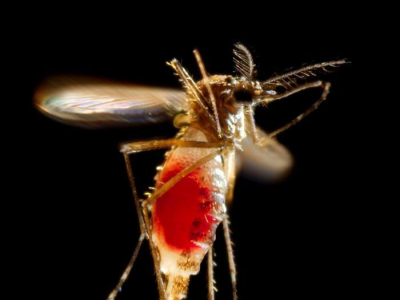May 5, 2006 (CIDRAP News) – The latest human infected with H5N1 avian influenza died of the infection yesterday in Egypt, while a leading influenza expert called H5N1 the worst flu virus he has seen.
The Egyptian victim was a 27-year-old woman from Cairo whose H5N1 case was announced yesterday, according to the World Health Organization (WHO). She had been hospitalized with bilateral pneumonia May 1, and a WHO statement yesterday had described her condition as stable.
She was the 13th Egyptian confirmed to have an H5N1 infection and the fifth to die of it. Her case was the first reported in Egypt since early April. The WHO's global case count now stands at 206 cases with 114 deaths.
Meanwhile, virologist and influenza expert Robert G. Webster, attending an avian flu conference in Singapore, told the Associated Press (AP), "I've worked with flu all my life, and this [H5N1] is the worst influenza virus that I have ever seen."
Webster, who works at St. Jude Children's Research Hospital in Memphis, said that in poultry, the virus invades the brain and destroys the respiratory tract, the AP reported. Concerning the threat of a human pandemic triggered by H5N1, he said, "If that happens, God help us."
According to the story, he predicted it would take at least 10 more mutations to give the virus the ability to spread from person to person. He added there was no way to know when or if that will happen.
"All of those mutations are out there . . . but the virus hasn't succeeded in bringing it together," Webster was quoted as saying.
He also said far more needs to be done to prepare for a pandemic and to understand the virus's behavior. Calling for stockpiling of more H5N1 vaccine, he labeled current efforts "miserable," according to the story.
Webster said research has been hampered by cultural attitudes preventing autopsies of victims, with autopsies conducted on only six people since the virus began spreading in late 2003.
In other developments, the 21 countries in the group Asia Pacific Economic Cooperation (APEC), meeting in Vietnam, agreed today on a plan for joint efforts to respond to the avian flu situation. The organization consists mostly of Asian and Western Pacific countries, but also includes the United States, Canada, Russia, Mexico, Peru, and Chile.
The 5-page plan calls for various kinds of cooperation. For example, the members agreed to:
- Increase the prompt reporting of avian and human cases and sharing of biological specimens
- Encourage the business sector to get involved in the prevention and control of avian flu
- Establish "best practices and common approaches to risk communications"
- Work to improve biosecurity on commercial and "transition" poultry farms
- Develop ways to exchange information on "management of travelers" to minimize damage to trade and travel
- Encourage steps, such as use of pre-authorized visas and customs, to ease the entry of WHO rapid response teams into countries that have invited them
See also:
WHO statement on death of Egyptian woman
http://www.who.int/csr/don/2006_05_05/en/index.html


















